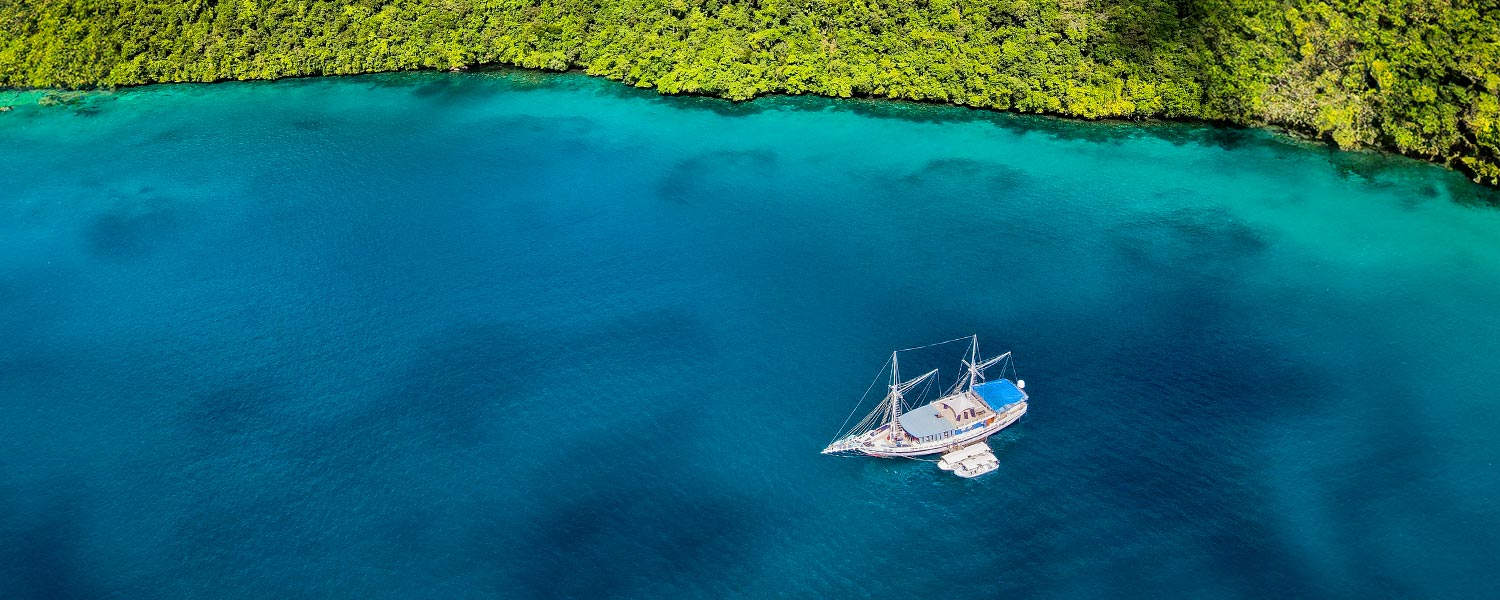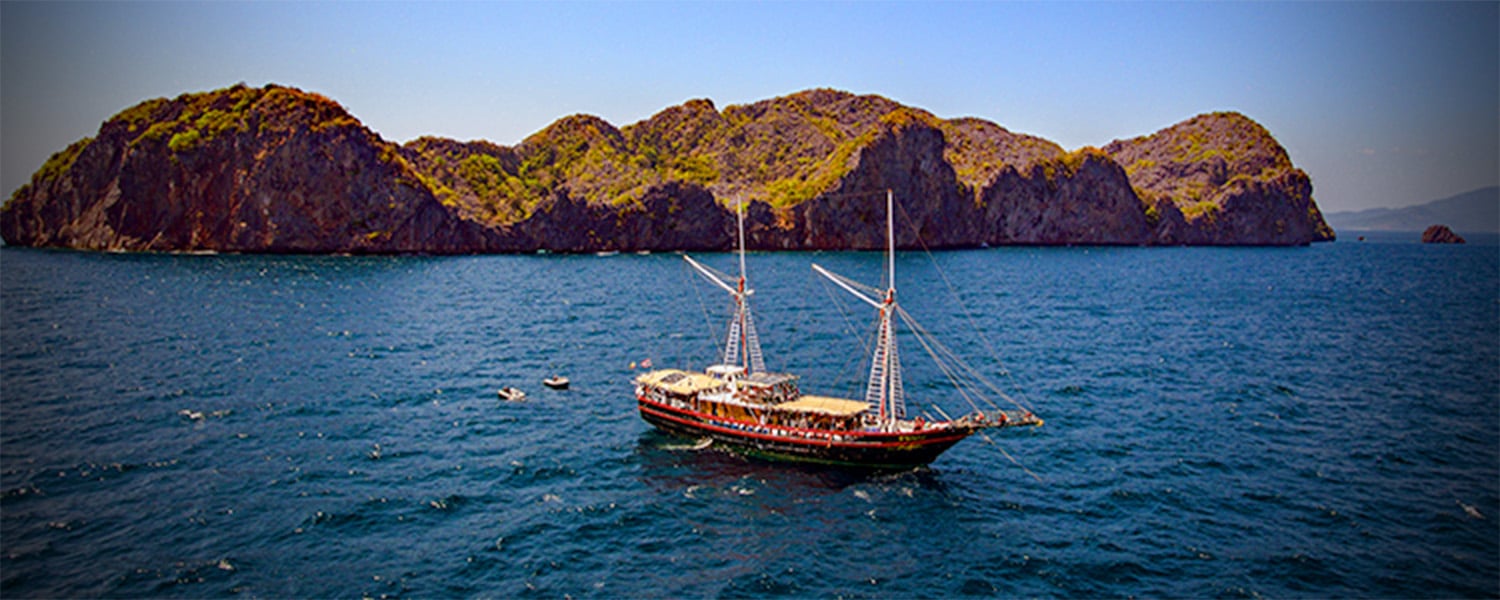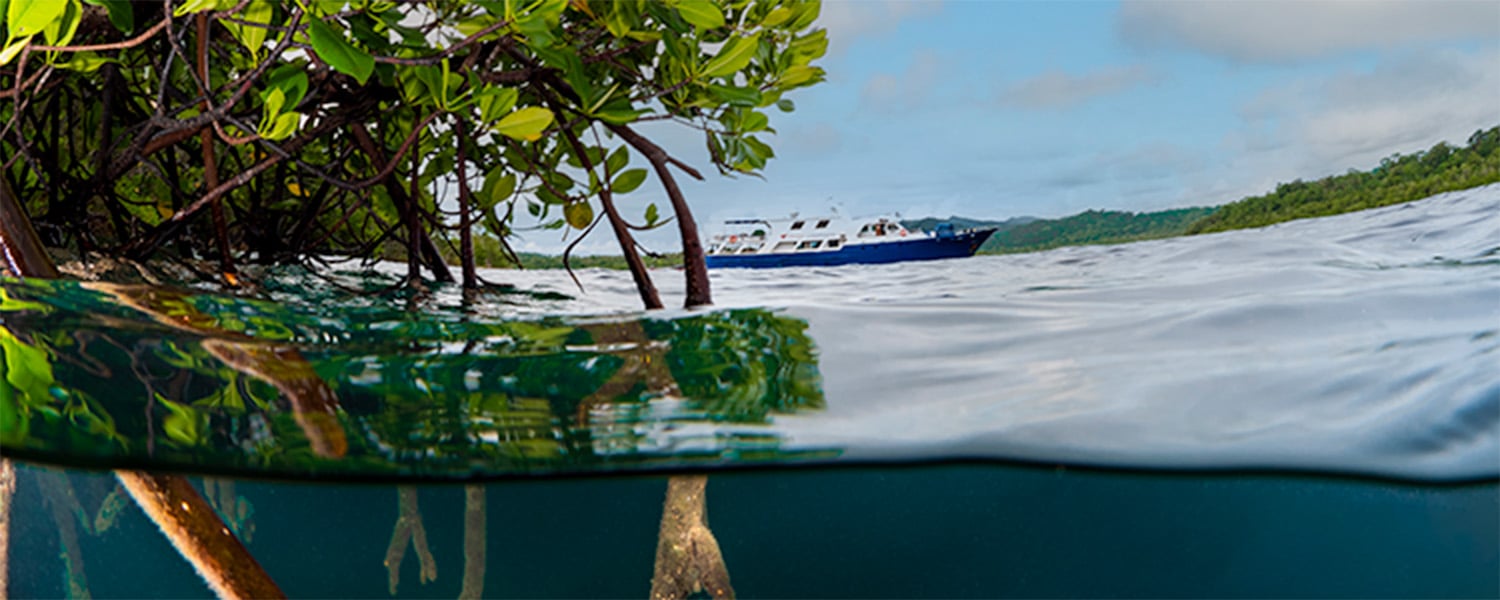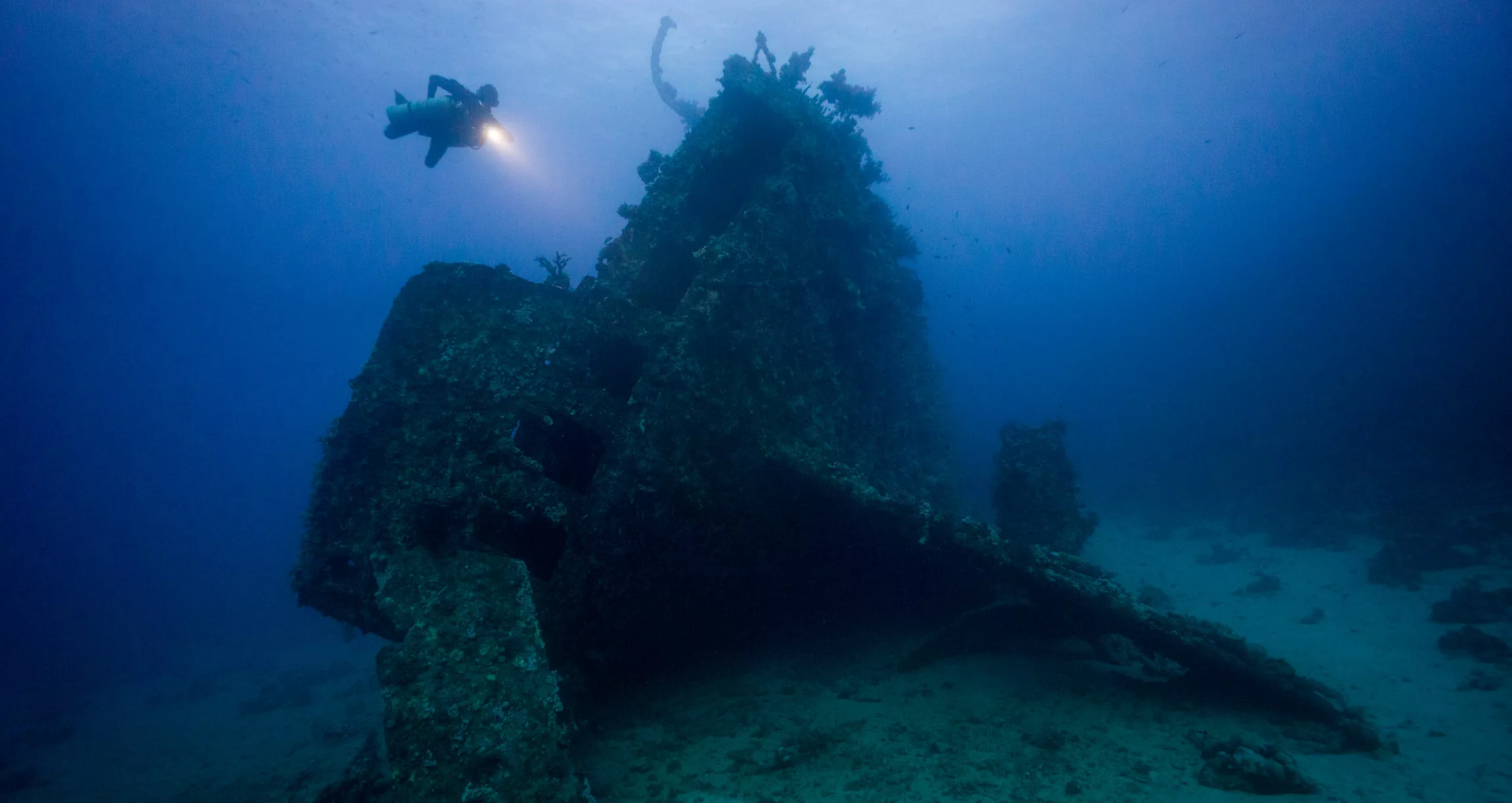Every year you hear the story of divers being left behind in the water. It always makes the news headlines and has even inspired Hollywood with blockbusters like “Open Water”. But in reality, how often do scuba divers get left behind? And what can you do to prevent it?
Reasons
There are several reasons as to why scuba divers can be left behind. It does occur from time to time, of course. But learning the causes behind it is a great way to ensure it does not happen to you.
Negligence and human error
The main reason is, unfortunately, negligence. This is of course the big sensationalist headlines you will read in the newspaper. As you may have seen during your liveaboard trips, many boats have a system to check divers in and out of the water. You can call it a checklist, a roster, or a roll call. It may take many forms but essentially the crew ticks off if someone goes off the boat and tick you back in once you are onboard.
On vessels with lots of divers or with a high turnover (ie: every day new passengers join), it is not an easy task to keep count. If the operators do not have a stringent system in place, you may be missed. This is exactly what happened to Tom & Ellen Lonergan. Their story inspired the movie Open Water. Their ordeal however had a positive effect of raising awareness and the whole scuba diving industry was shaken to the ground. This forced a series of tighter mandatory safety regulations for diving boats in Australia, but also worldwide.
Other reasons
Emergencies are also a contributing factor of divers being left at sea. Captains may sometimes have to make a hard choice. Imagine this scenario: a group of divers surface and there is a medical emergency. The captain may have to leave other divers behind in order to bring back the casualty to port. Though in these cases, normally another vessel will be tasked with collecting the other group. Normally.
The environment also has a great impact on divers being stranded at sea. Mother Nature can be really harsh and strong currents – both underwater and at the surface – can easily sweep divers well away from planned dive sites. Bad surface weather – rains or heavy swells for instance – can contribute further to the crisis by making you invisible.
Also, mechanical failure has led to incidents in the past. This happens when a liveaboard only has one tender outboard, for example. If this outboard fails and they cannot pick you up, you may be drifting a long way until someone can pick you up.
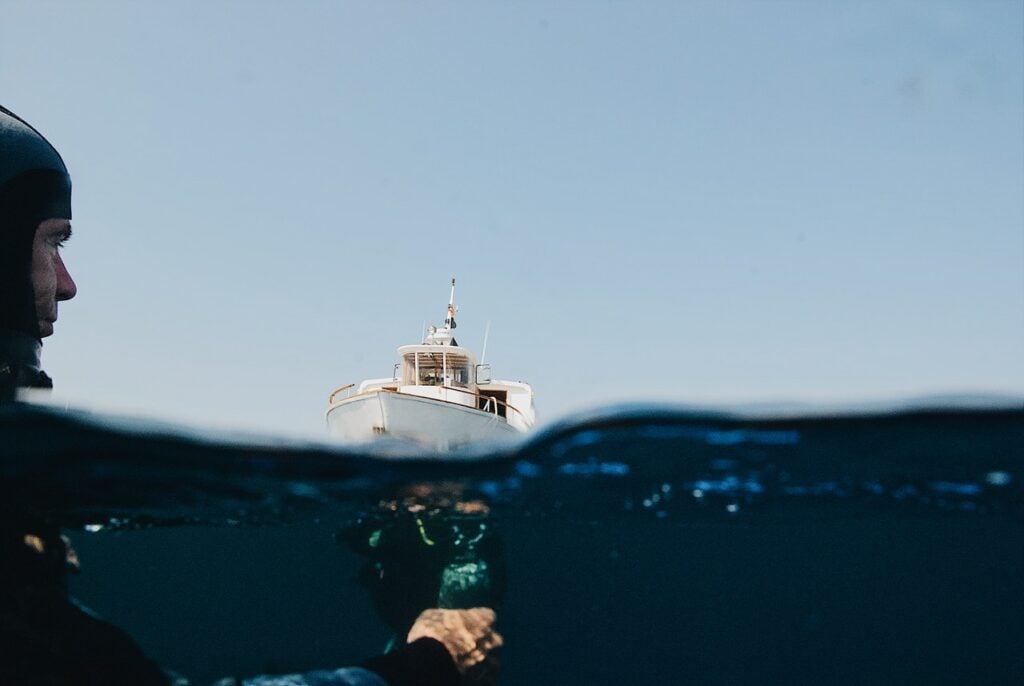
How often does this actually happens?
Unfortunately no one really knows how often scuba divers get left behind. Even after extensive searches, we could not find reliable statistics.
Scuba diving, like any sport, is not a zero-risk activity. We learn extensively about the risks during our training and how to prevent incidents. We also accept the risks because the rewards are just awesome! And when put in perspective, scuba diving is still a lot safer than a lot of other adventure sports.
Clemens published an extremely interesting article entitled “the risk of dying doing what we love” and analysed fatalities per activity before putting it into perspective with the risk of flying on a commercial plane. His amazing infographic shows that scuba diving is a dangerous activity however no where near sports like paragliding or downhill mountain biking – good for us!
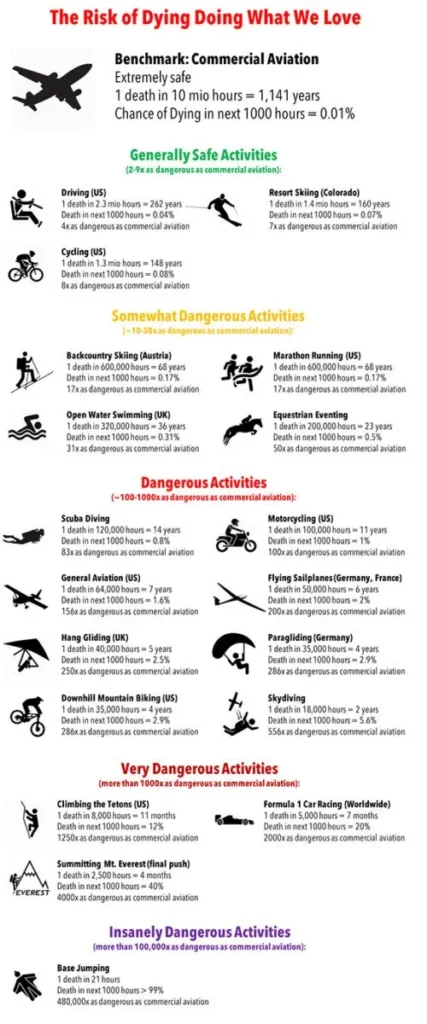
How to prevent it?
We know the reasons as why scuba divers get left behind. So now let’s learn what we can do to prevent it!!!
Choose the right operator
First off, when you go diving, chose a reliable operator. If you step on a boat and are not checked back in after your dive, take your gear and run away! Checklists, roster, and roll calls are a must. It is not something that you can do without or can compromise on. An operator that does not have a system in place is not worth your time nor money.
There is also another check you can do on your chosen operator, especially if you are diving with tender support. Just check that they have at least 2 tenders and a spare outboard. As we have seen, mechanical failure could be a cause of you being left at sea but can easily be prevented with backup support provided by your operator.
Carry emergency equipment
Another great tip is to invest in your own emergency equipment. There are lots of things on the market and the kit will not necessarily cost you a fortune. Even if you rent your scuba gear, you can easily pack these emergency tools in your suitcase and add them to your basic rental equipment. These could be: surface marker buoys (SMB), mirrors, whistles, flags and even GPS personal beacons. Having this equipment with you, should something happen, could make the difference between you being rescued and not.
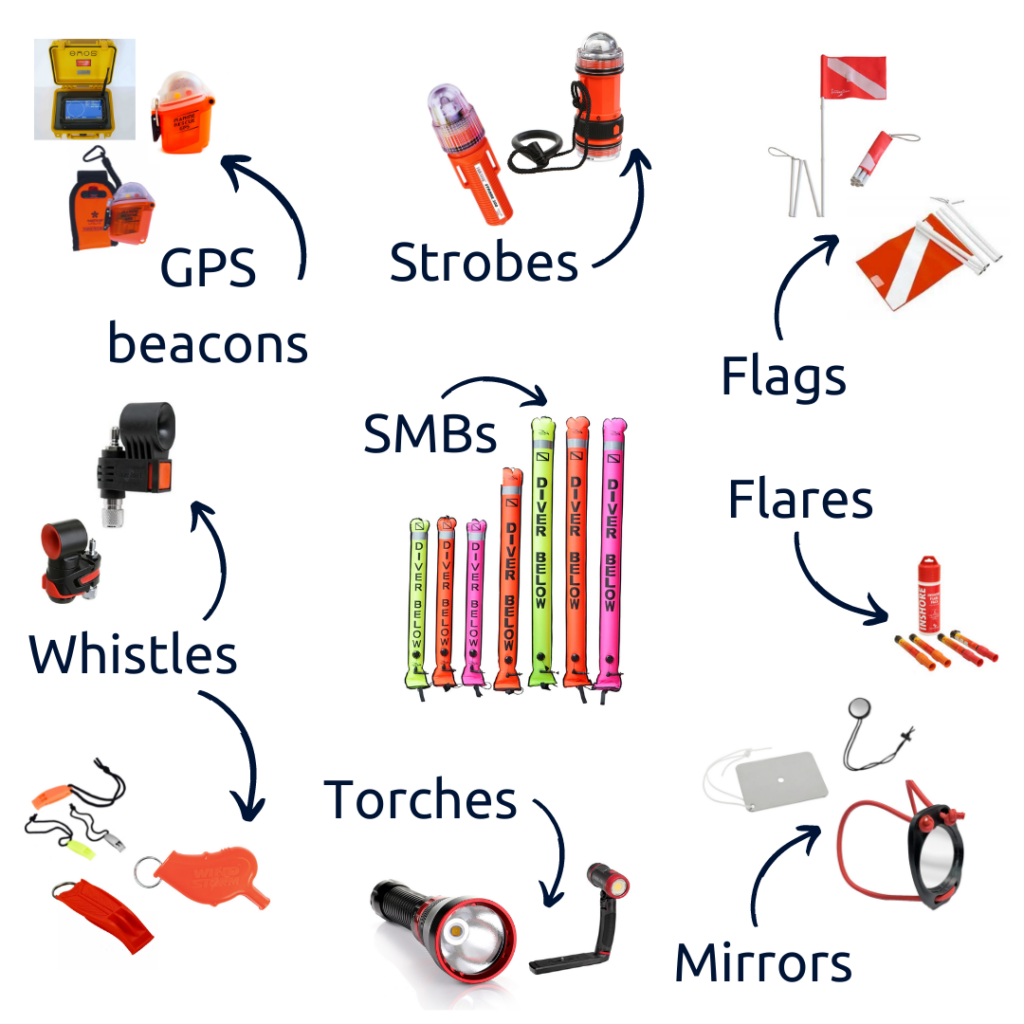
Have a look at yourself
The last action you can take in order for not be left behind is to have a good look at yourself. Make sure you always follow the briefing instructions, adhere to the safe standards, carry the appropriate equipment, plan your dive, and dive your plan. Help yourself and do not put yourself willingly in a situation that could lead you being left at sea.
What to do if you get left behind?
If you do find yourself left behind, there are a few safety tips to follow.
Mental strength
Your mental strength will often be the most important deciding factor in survival scenarios. The first rule, which is so easy to overlook, is NOT TO PANIC. It is essential you remain calm to conserve your energy and also keep a clear head. A clear head is a thinking head and will go a long way to ensure you take the appropriate steps. Strive to survive!
Your surroundings
Where are you? Try to get your bearings. Determine where you are in relation to the shoreline or from which direction rescue would come from is a great step towards self-rescue.
Try assessing the direction of the currents by looking at reefs or seaweed/kelp which is floating by.
- If the currents are running to the shore, this is excellent news and position yourself accordingly.
- Should the currents run offshore, your situation has worsened a notch and it is essential you try catching on anything stationary such as a mooring line buoy or any other buoys.
- If there are none, then at least face the direction you are coming from. Chances are your help will come from there and by spotting them, you might be able to help them further by signalling.
Your tools
If you came prepared (as recommended above), get all your tools and gadgets ready. Use all your audio and visual signaling devices to try and attract attention. SMBs, whistles, mirrors, flares: get the whole show on the go! These tools are made for those situations so it is really time to use them.
Your energy and strength
Prepare to wait. The best case is often to wait to be rescued. If you have the chance and opportunity, hold on a mooring line or climb out from the water. We lose heat a lot faster in the water so any chance you get, get out from the water.
Conserve your energy. Currents are always going to be stronger than you so there is no point swimming against them. Studying your surroundings (see above) will help you conserve energy. It will be a marathon and not a sprint race so do anything in your power to keep your strength.
The aim of this article was to raise awareness on this topic. We love diving and want the industry to remain safe. Lessons learned are a great way to move forward and ensure our liveaboards remain safe for our crews and your benefit. Contact us if you have any questions: we are always happy to answer!
